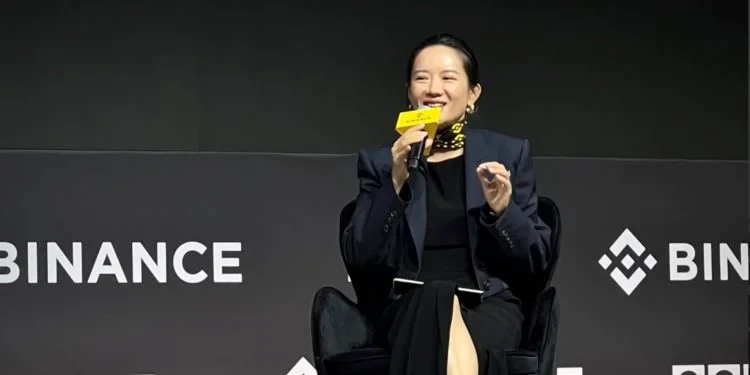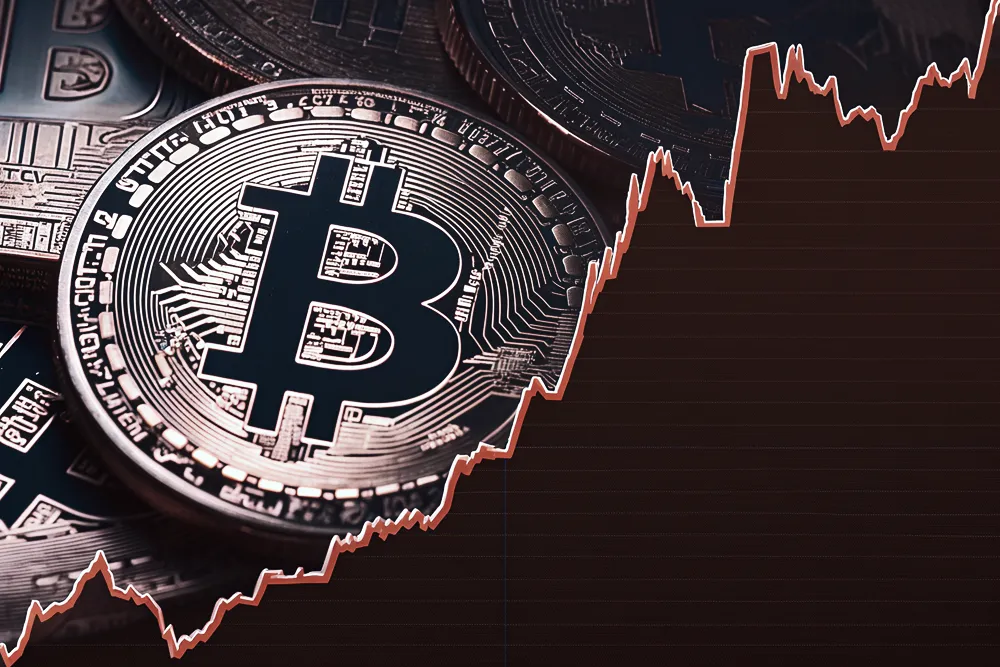Original Title: "He Yi Shares Binance's Three Core Values, Urges Wall Street to Let Go of Prejudices and Prosper with Cryptocurrency"
Original Author: AC, BlockTempo

The Binance Blockchain Week Dubai 2024 conference, hosted by the world's largest exchange Binance, grandly took place in Dubai from October 30 to 31. Binance specifically set the theme for this event as "Momentum," aiming to showcase how the cryptocurrency industry has accelerated its growth and achieved significant milestones since the last Istanbul summit amidst challenges.
On the first day of Binance Blockchain Week 2024, a highly anticipated fireside chat will serve as the closing segment of the day, where Binance co-founder He Yi engages in an in-depth dialogue with Alice Liu from CoinMarketCap, discussing their visions for the future of Web3, under the theme "Driving Momentum: He Yi on Binance's Vision."
Striving for Two Types of Financial Freedom
Alice Liu: Since Binance's establishment, I would like to ask about the corporate culture. What are the core values and cultural elements that have remained unchanged since Binance was founded?
He Yi: Many people ask me how Binance has succeeded. The main difference between Binance and other startups is that we have a unique culture. If you look at the world's most successful companies, they all have very special cultures. I believe culture is the only element that can bring people together. Culture can sometimes be hard to explain, but it helps us find those who share our values in innovation, mission, and evaluation.
I believe culture is the only thing that can bind some people together. If we only look at finance itself, first, I think we have a strong vision. We talk about financial freedom, and Binance wants to create a simpler network for these people to easily achieve financial freedom.
"Financial freedom has two meanings: one is that you no longer need to work financially, and the other is to provide a simpler and better service for financial freedom. At Binance, our users expect to get rich through trading and achieve financial freedom, while they also hope to receive better services and user-friendly products."
We are not limited to trading; we also have yield, skills, academy, and payment functions. Some business units may not directly generate revenue, but they build a good infrastructure for our community.
He Yi also emphasized Binance's three core values—Responsibility, Accountability, and Humility. She mentioned, "No matter where we are, our team members take responsibility for their work and impact."
We advocate a "user-first" culture at Binance. There are still many entrepreneurs in the industry who are genuinely working to improve the world. User-first means we are truly building what users need, rather than just pushing so-called "junk coins." There are many builders in the industry who are continuously striving, which deeply moves me.
Admitting CZ's Exit Was a Challenge
Alice Liu: Binance has faced many challenges in the past few years. What do you think are the most significant challenges for Binance?
He Yi: I think for Binance, many people believe that last year's downturn was the most challenging moment. As a startup, when the founder steps down, it is a significant challenge for the team. However, we have a good direction—we want to build this company into a mature organization, not just a startup.
Our goal is to form a strong team that collaborates and supports the company's growth. Startups often rely on certain unique skills of the founder or co-founder to compete, such as excellent marketing or technical abilities. However, as the company matures, we need sound organizational policies and environments to ensure that the company can continue to grow even without the founder.
"We are working hard to achieve this. Fortunately, we are currently operating well and still leading the industry. There are two main challenges: one is internal organizational challenges, which we have already addressed; the other is external environmental challenges.
Ten years ago, no one cared about cryptocurrency or Bitcoin, but now the crypto industry is receiving more attention, and regulators are closely monitoring this industry. I think this is a good thing because at least we are starting to become part of the traditional financial world."
However, different regulatory agencies have different understandings of our industry, so we are collaborating more with the traditional financial world. Although some crypto-native enthusiasts may ask me if I feel I am no longer part of the crypto community because of our increased cooperation with regulators and traditional finance.
"I believe that to truly support more people globally in using cryptocurrency,
to the esteemed Wall Street traders,
we should collaborate with traditional finance and understand each other."
We do not want to be an isolated business; we want to make the crypto world more accessible, allowing users like my grandmother to use Web3 directly, just like using a mobile phone.
Alice Liu: Great! As you mentioned, this is about long-term vision and planning, as well as observing the long-term development of the industry. Congratulations, Binance currently has 233 million users, which is a great achievement. I would like to know, as one of the leaders, what are your future plans?
He Yi: I think this can be divided into two parts. First, we want to continue strengthening our internal organizational strength and build a strong structure. I have been talking about how to establish a sufficiently solid company so that it can continue to grow.
Externally, our industry is at a special moment. We see many traditional and emerging technologies (such as 3D printing) approaching everyday life. Cryptocurrency also has this potential, and it is crucial to integrate this technology into people's daily lives.
Our goal is not just to enter the industry and drive up prices, but to build a better future. We should work together to promote industry development. Therefore, we are looking for innovative startups that bring practical application scenarios to the world, not just limited to trading, allowing the entire industry to be utilized.
Although there are still many startups in this field, this is normal. People often ask me if I still believe in cryptocurrency. I believe because I act on certain beliefs. This is the power of positive belief—like
"If you look at the world positively, you will create a positive environment. Of course, just having positive beliefs is not enough; you also need to give your all. Failure is normal, but we should keep pushing forward."
Next year will definitely be a good year
Alice Liu: Great! I have one last question. This year has been very special for us, with ETFs and more regulations. What positive signals would you like to share with users?
He Yi: When we talk about regulation and ETFs, it means we have integrated into part of the financial world, which is a positive signal. Today, Bitcoin's price is also rising.
"I have been in this industry for over 10 years. Every bear market, many will tell me that Bitcoin has failed again. Bitcoin has failed time and time again, but I always believe that, like a cycle, it will continue to grow."
If you ask me, I am confident that next year will be a good year. This is good news for the industry and users. At the same time, we can see more and more practical applications emerging. Unlike 10 years ago, cryptocurrency is now helping many people in various countries improve their lives. For example, over 12.5% of users in a certain country use Binance every month, not just for trading, but also for payments and transfers, even to make money.
"This is not just trading; it is a process of changing the world and building business models. Stablecoins are a simple tool, but they have started to work and are no longer just a dream. I hope everyone can understand that a better future is coming, and what we need to do is not wait but seize the opportunities at hand."
免责声明:本文章仅代表作者个人观点,不代表本平台的立场和观点。本文章仅供信息分享,不构成对任何人的任何投资建议。用户与作者之间的任何争议,与本平台无关。如网页中刊载的文章或图片涉及侵权,请提供相关的权利证明和身份证明发送邮件到support@aicoin.com,本平台相关工作人员将会进行核查。



